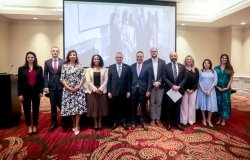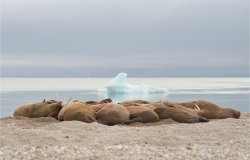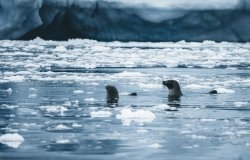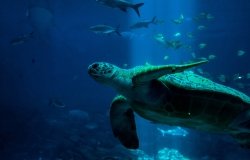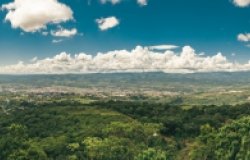Advancing Biodiversity for Community Resilience and Global Stability: Insights Ahead of COP16
Overview
Biodiversity is in sharp decline, and the implications for global stability are significant. The World Wildlife Fund has estimated a 69% decrease in monitored wildlife populations since 1970, driven by climate change, deforestation, pollution, and human encroachment. While the moral imperative to protect life on our planet is strong, healthy ecosystems are also vital for human health, food and water security, and climate resilience.
Next month, experts and country representatives will convene in Colombia for the United Nations Biodiversity Conference (COP16) to deliberate on global goals and actions to protect the diversity of life on our planet. The 2022 meeting - hosted by China - resulted in a landmark global deal to protect 30% of the world’s land and sea by 2030. This year’s Biodiversity COP will focus on next steps to implement the 30x30 agreement, and how to reform global financial systems to support developing countries in achieving their commitments.
Join the Wilson Center with a distinguished panel of experts as they explore the significance of the biodiversity summit, why it matters to the resilience of communities around the world and global stability, and what investments are needed to advance biodiversity protection.
About the Speakers:
João Campos-Silva
João Campos-Silva is a conservationist and researcher focused on aligning biodiversity conservation and human wellbeing. As a National Geographic Explorer, he investigates changes in habitat and migratory conditions for aquatic wildlife throughout the Amazon River Basin. Dr. Campos-Silva has been working in Amazonia since 2008 and is the inaugural president of Instituto Juruá, a research nonprofit created to develop and implement community-based solutions for Amazonian conservation. He is also a postdoc researcher at the University of Life Sciences in Norway and a 2019 Rolex Award Laureate.
Jennifer Tauli Corpuz
Jennifer Tauli Corpuz is from the Kankana-ey Igorot People of Mountain Province in the Philippines and is the Managing Director of Policy for Nia Tero, a US-based foundation that supports Indigenous guardianship of collective territory and culture worldwide. Corpuz has represented Indigenous peoples as a negotiator and expert for the International Indigenous Forum on Biodiversity, including at negotiations that led to the adoption of the Nagoya Protocol on Access and Benefit-Sharing and the Kunming-Montreal Global Biodiversity Framework under the Convention on Biological Diversity. She has also been an active participant in the World Intellectual Property Organization negotiations on the protection of traditional knowledge.
Anton L. Delgado
Anton L. Delgado is a freelance multimedia journalist in Southeast Asia. Through writing, photography, and videography, he covers topics intersecting climate, politics, business, and environment. He is currently an investigative fellow for the Rainforest Investigations Network at The Pulitzer Center on Crisis Reporting, investigating forest and wildlife crimes in Cambodia and across Southeast Asia, with a focus on international timber trade agreements, forest management policies, and protected area privatization. Delgado has previously worked with several newsrooms, including The Associated Press (AP), Bloomberg, NPR, and Mongabay, and reported for The Southeast Asia Globe and The Arizona Republic.
Rod Schoonover
Rod Schoonover is Co-Founder of the Ecosecurity Council and Adjunct Professor at Georgetown University, where he teaches climate science. He served a decade in the U.S. intelligence community as the Director of Environment and Natural Resources at the National Intelligence Council in the Office of the Director of National Intelligence and as Senior Scientist and Senior Analyst in the State Department’s Bureau of Intelligence and Research. He also previously served as a tenured Professor at Cal Poly, San Luis Obispo. Dr. Schoonover earned his PhD in theoretical chemical physics at the University of Michigan.
Panelists
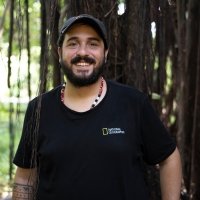
João Campos-Silva
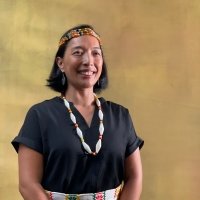
Jennifer Tauli Corpuz
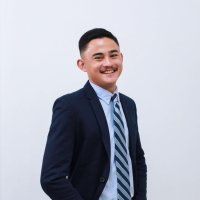
Anton L. Delgado
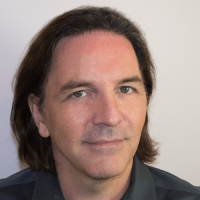
Rod Schoonover
Hosted By

Environmental Change and Security Program
The Environmental Change and Security Program (ECSP) explores the connections between environmental change, health, and population dynamics and their links to conflict, human insecurity, and foreign policy. Read more

China Environment Forum
Since 1997, the China Environment Forum's mission has been to forge US-China cooperation on energy, environment, and sustainable development challenges. We play a unique nonpartisan role in creating multi-stakeholder dialogues around these issues. Read more

Indo-Pacific Program
The Indo-Pacific Program promotes policy debate and intellectual discussions on US interests in the Asia-Pacific as well as political, economic, security, and social issues relating to the world’s most populous and economically dynamic region. Read more

Latin America Program
The Wilson Center’s prestigious Latin America Program provides non-partisan expertise to a broad community of decision makers in the United States and Latin America on critical policy issues facing the Hemisphere. The Program provides insightful and actionable research for policymakers, private sector leaders, journalists, and public intellectuals in the United States and Latin America. To bridge the gap between scholarship and policy action, it fosters new inquiry, sponsors high-level public and private meetings among multiple stakeholders, and explores policy options to improve outcomes for citizens throughout the Americas. Drawing on the Wilson Center’s strength as the nation’s key non-partisan policy forum, the Program serves as a trusted source of analysis and a vital point of contact between the worlds of scholarship and action. Read more





